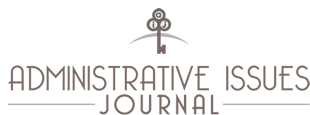
Abstract
This manuscript reviews issues that differentiate traditional academic cheating from course misconduct that is motivated by a desire to defraud financial aid services in the U.S. Past research on college student cheating has assumed that cheaters are driven by an incentive to obtain undeserved grades in college in order to ultimately obtain a degree. However, researchers on academic dishonesty, professors, and college administrators might not realize that online class members can include virtual "straw" students who are puppets of a financial aid fraud ring leader. Cheating behaviors of straw students differ from cheating behaviors of actual, legitimate students. This has implications for those who attempt academic dishonesty research in online environments, and it has implications for course-level professors and university administrators who are in a "should have known" position with regard to discovery of a financial aid fraud ring.
Recommended Citation
Owen, Robert S.
(2016)
"Cheating in Online Courses for Financial Aid Fraud in the U.S.,"
Administrative Issues Journal: Vol. 6:
Iss.
2, Article 9.
Available at:
https://dc.swosu.edu/aij/vol6/iss2/9
Included in
Health and Medical Administration Commons, Higher Education Administration Commons, Public Administration Commons
Please consider contributing an article to Administrative Issues Journal, our submission policy: http://www.swosu.edu/academics/aij/guidelines.aspx
